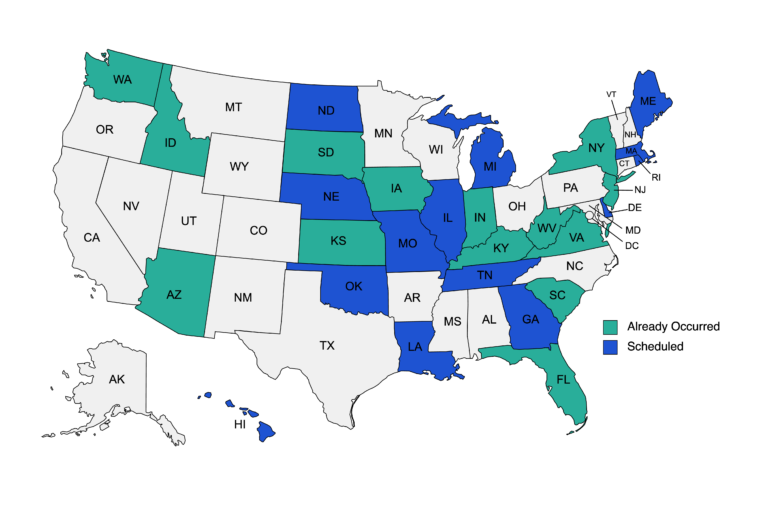As higher education enrollment numbers continue to decline nationally, there has been much debate over how to measure and demonstrate the impact of a postsecondary degree. Legislators in the state of Colorado are making moves to ensure these impacts are tracked and quantifiable. H.B. 1349 Postsecondary Student Success Data System, introduced by Rep. Monica Duran on March 29, currently sits on the governor’s desk. The bill will create a data collection system to monitor how various postsecondary pathways influence a student’s career opportunities. Currently, education consumers, employers, and policymakers lack the longitudinal data they need to make better-informed judgments about the value of education investments. If enacted, the bill authorizes $3 million that will be used to equip Colorado postsecondary education leaders with the information they need to better support students and set them up for success.
More specifically, the legislation would:
- Require the Colorado Commission on Higher Education (CCHE) to enact a policy directing the Colorado Department of Higher Education (CDHE) to develop student success metrics that measure students’ progression through postsecondary education and the impact of postsecondary pathways on students’ career opportunities and success.
- The student success metrics would include both postsecondary success measures and workforce success measures.
- Require CDHE to create and maintain a statewide student success data system that includes both institution-specific interfaces and a public interface.
- Require CCHE to use the data from both the institution and statewide data systems to examine educational and workforce success disparities among student populations.
Colorado isn’t the only state considering how to better connect education, wage, and workforce data. In March, Utah passed SB 226, providing $1 million to fund seven analytics positions to use workforce data. Historically, there have been challenges in analyzing this data including talent skills gaps. Additionally, legislators in New Jersey are currently considering AB 375 which would require the development of a longitudinal data system that maintains individuals’ data from preschool through entry into the workforce. In addition to Whiteboard Advisors’ ongoing review and analysis of legislation that impacts student success, the national nonprofit, Credential Engine tracks state policies that support credential transparency and establish interoperable data systems.




